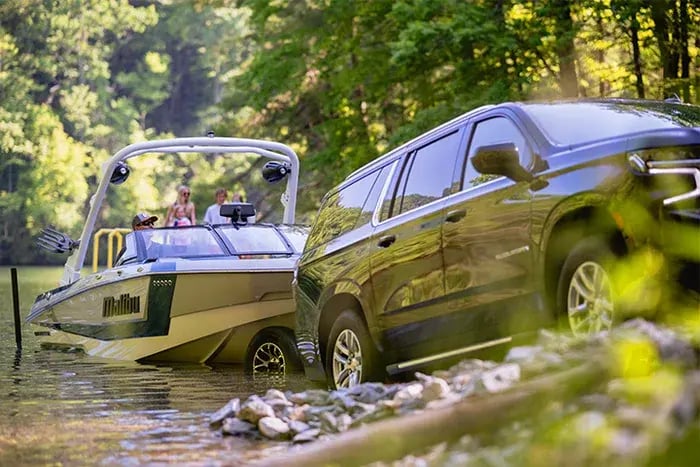Every sport has its unwritten rules, and for most of us, watersports go beyond a mere sport and into a full-blown lifestyle. If you want to join this niche club — we welcome you with open arms! But there are some things you need to know first, because while some things with watersports may be judgment calls or preferences, there are some big missteps that can cause anything from hurt feelings to property damage. Here’s how to avoid them and ensure a great day on the water for everyone.
Power Turns
If there’s anything that will grind the gears of a seasoned watersports boater, this is it. Power turns are any turn that is undertaken with speed, and while runabout boaters might buy their boat specifically for this, it’s a major faux pas for watersports boaters. Why? Not only does it ruin the water for everyone around the power turner—and far worse—if it’s done after a rider falls, it is extremely dangerous. Instead, of power-turning to pick up your rider, just ease the throttle back and crank the wheel to the right side to slowly idle back to your fallen rider. Not only does this always keep the fallen rider in view for the driver, but righthand turns are better for the driver’s visibility when someone’s in the water. This way everyone is safe and the water stays calm—along with other boaters’ tempers. .
Wake Responsibly — Watch Your Wake
Take the WSIA pledge to Wake Responsibly. If we all work together to follow these simple rules, everyone wins. Homeowners are happier, other boaters are happier, and we can all continue to make memories on the water with our families for years to come. Stay at least 200 feet away from docks, shores, other boats, pilings, obstructions, and fallen riders so your wake or wave has a chance to mellow out.

No Wake Zones
In areas marked as no wake zones with signs or buoys, it’s extremely important to respect homeowners’ privacy and property by slowing down. Relax, be patient, and go idle speed through the entire no wake zone.
Turn it Down
Tower speakers are great, but the problem is sound carries really well over water, so what your crew is listening to can sometimes be heard by homeowners. Turn it down when you’re around houses and at sandbars so everyone can hear their own playlist.
Don’t Plow
While 10 miles per hour is great for surfing, it’s not great for much else. Unless you’re wakesurfing, your boat is designed to either be idling (slow speeds with minimal wake) or on plane (higher speeds with minimal wake). When you plow through the water with the bow raised, you’re not only getting bad fuel economy but you’re creating a larger wake than necessary. You’ll get the hang of minimizing your plow time as you get more experienced.
Don’t Drink and Boat
Sure, there are a lot of songs about it, but responsible boat owners never drink and boat. It’s equivalent to driving your car under the influence: you just don’t do it.
Safety Lanyard
You may not be familiar with the emergency engine cutoff switch safety lanyard if you haven’t spent much time on boats in the past, but veteran boaters know what’s up. You can attach the lanyard to yourself or your lifejacket and it will instantly turn off the motor if the other end is pulled out. This is especially critical in rough seas or at higher speeds while turning.
Ramp Etiquette
The boat ramp is filled with experts and novices alike, all just trying to enjoy their day on the water. It’s important to follow all the boat ramp’s posted rules and stage your boat in the proper place so others can launch if they are ready. Try not to monopolize dock space at the ramp and park in a designated trailer parking spot.

Be Courteous
This is a blanket statement that your mom would tell you if she were a boater. It’s important to minimize repetitive passes near other boaters or homeowners, help others learn to boat responsibly without being arrogant, and always keep your cool. Keep a sharp eye out for when you might be doing something that annoys others and try to remedy the situation. It’s usually fairly obvious if you’re looking for it.
Keep these tips in mind and you’ll be a veteran boater in no time. You’ll make friends on every lake you visit, you’ll make memories that last a lifetime, and you’ll realize how much watersports boating is a lifestyle rather than just a sport.